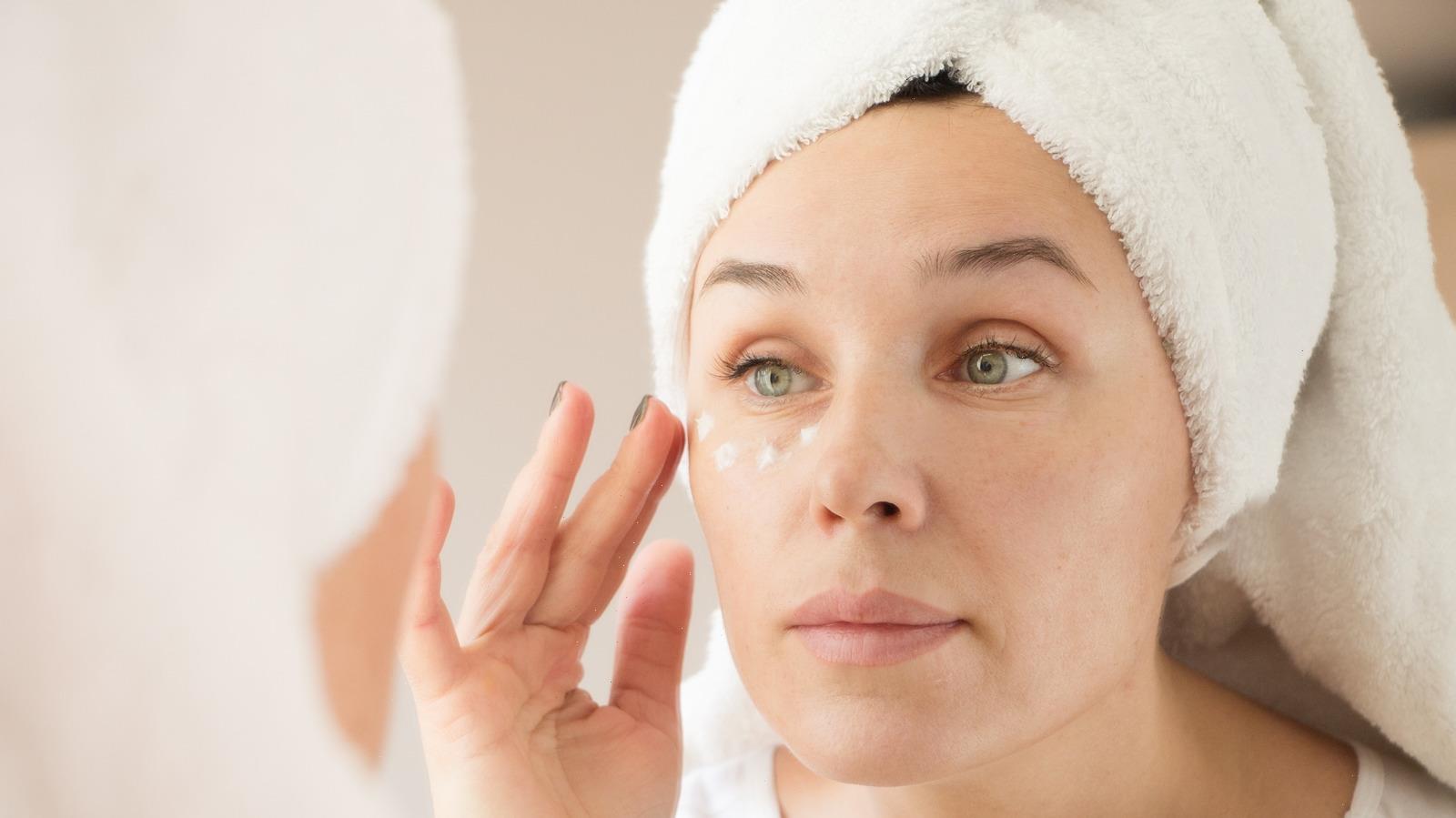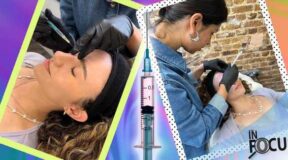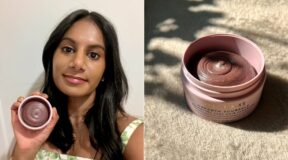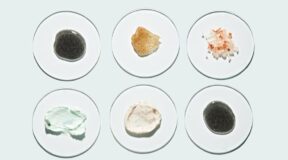Mineral oils, beeswax, alcohol, and paraffin are skincare ingredients you should avoid if you have oily skin. These compounds can clog your pores and trigger or worsen acne, says dermatologist Tiffany J. Libby (via Pure Wow). Alcohol-based products, for example, increase sebum production and affect your skin’s protective barrier. Likewise, people with oily skin should avoid makeup products containing alcohol, fragrances, parabens, and other ingredients that may cause acne.
Some individuals are born with oily skin, while others develop this problem as they get older. Stress, hormonal fluctuations, and humidity only make things worse. What you eat matters, too. Generally, oily skin occurs when the sebaceous glands produce excess are overactive and produce excess sebum, Dr. Rita Linkner told Insider. Excess sebum can clog your pores and cause pimples.
As a general rule, steer clear of harsh cleaners and heavy moisturizers. Use products that match your skin type and have the terms “oil-free” and “noncomedogenic” listed on the labels, recommends the American Academy of Dermatology Association. While it’s important to apply moisturizer daily, make sure you choose one with a light texture and a sun protection factor (SPF) of 30 or higher.
Avoid occlusive ingredients
Along with humectants and emollients, occlusives are among the most common ingredients in moisturizers. These compounds have a greasy texture and hold water in the skin (via Harvard Medical School). But if your skin is already oily, using occlusives can do more harm than good.
Moisturizing creams typically contain mineral oils, beeswax, paraffin, lecithin, petrolatum, and other occlusive agents, according to Harvard Medical School. While it’s difficult to avoid these ingredients, try to use skincare products that are high in humectants but low in occlusives, recommends Dr. Anjali Mahto (via Harper’s Bazaar). Hyaluronic acid, glycerin, and alpha-hydroxy acids are all excellent humectants.
Note that some ingredients have both occlusive and emollient effects. A good example is dimethicone, a silicone-based agent that locks in moisture and may relieve irritated skin. Since it creates a mattified finish, it’s widely used in face creams and other products for oily skin, notes British Vogue. When combined with glycerin, this compound may also reduce the signs of aging and strengthen the skin’s protective barrier, according to an earlier study published in Clinical and Experimental Dermatology.
High-oleic oils can clog your pores
Natural oils, especially those high in oleic acid, tend to clog the pores and cause breakouts. Coconut oil, for instance, is suitable for dry skin due to its moisturizing effects. When applied topically, it may also speed up wound healing and prevent acne scars, explains Healthline. The downside is that it’s highly comedogenic, meaning that it can lead to clogged pores and blackheads. For this reason, it’s not recommended for those with acne or oily skin.
Olive oil, canola oil, soybean oil, and palm oil are rich in oleic acid, too (via Food Processing). These are some of the skincare ingredients you should avoid if you have oily skin. While they can make a healthy addition to your diet, they’re not the best choice for your beauty routine. For example, a 2013 study featured in Pediatric Dermatology suggests that olive oil can significantly damage the skin barrier and worsen atopic dermatitis when used topically.
However, this doesn’t mean you should avoid all skincare products that contain olive oil. Face creams and other skincare products contain various ingredients in addition to olive oil, which may reduce or eliminate its pore-clogging effects, says dermatologist Mona Gohara (via Cosmopolitan). She also adds, “You can totally use olive oil if you really want to, especially if you’re not prone to acne or dryness, but it’s not likely to transform your skin.”
Be cautious about alcohol-based products
As mentioned earlier, alcohol-based toners, serums, and creams can harm your skin and increase oiliness. The alcohols in skincare products act as solvents and preservatives. Manufacturers typically use isopropyl alcohol, denatured alcohol, SD Alcohol 40, ethyl alcohol, or cetyl alcohol. Some of these compounds are safer than others for people with acne or oily skin, according to John Zampella, M.D (via SELF).
Dr. Zambella suggests using products with ethyl alcohol if you have oily skin. However, this compound may irritate and dry out sensitive skin. Note that any type of alcohol can affect your skin when used in excess. Melissa Piliang, M.D. told SELF that solvent alcohols can damage your skin’s lipid barrier, leaving it prone to irritation. Moisturizing fatty alcohols, such as cetyl or stearyl alcohol, may trigger allergic reactions and clog your pores.
Rubbing alcohol isn’t better either, says Verywell Health. When applied topically, it can strip the skin of its natural oils and cause dehydration. As a result, your body’s sebaceous glands will produce more sebum to replace the lost oil. This may lead to pimples and greasy skin.
These are just a few of the skincare ingredients you should avoid if you have oily skin, pimples, or blemishes. You may also want to skip any products that contain sodium lauryl sulfate, fragrances, artificial dyes, and isopropyl myristate. Many of these chemicals are comedogenic and may cause clogged pores. Your daily habits matter, too. Common mistakes, such as washing your face too much and eating sugary foods, can worsen acne and oily skin.
Source: Read Full Article









